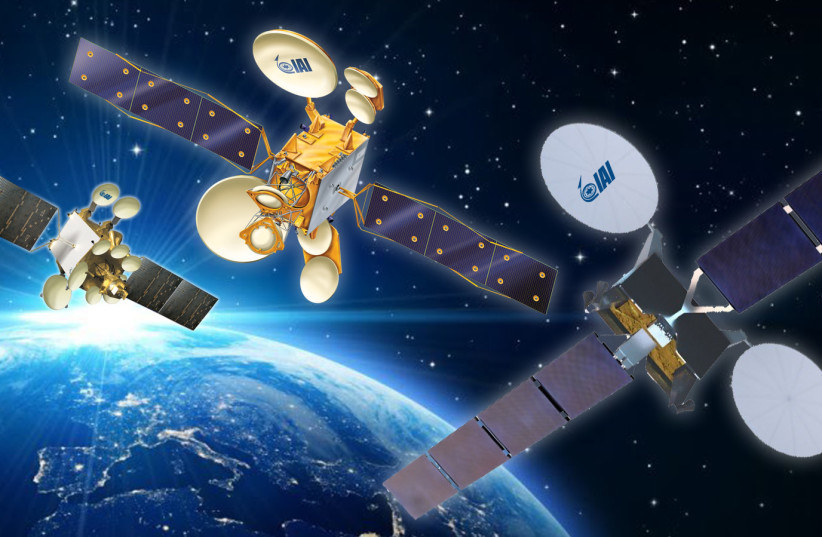There is potential for the Israeli and Emirati militaries to cooperate in space, Shlomi Sudri, general manager of IAI’s Space Division told The Jerusalem Post following the International Astronautical Congress in Dubai.
“Overall we are living in a relatively similar attitude line in the globe, and there are a lot of things in the neighborhood that are of interest to both countries, so there is a possibility,” Sudri said of potential military cooperation in space.
“It may be possible to cooperate with the UAE’s military.”
Both Israel and the UAE are wary of Iran’s growing hostility in the region, and Israel’s military has been keeping a close eye on the Islamic Republic through its army of satellites, the latest one – IAI’s Ofek 16 – having been launched in July of last year.
IAI is the leading Israeli company that deals with state-of-the-art space and satellite technology used for various purposes including defense.

“We have a lot in common with the United Arab Emirates, both relatively small countries that are in an interesting neighborhood,” he said.
But the electro-optical reconnaissance satellites with advanced capabilities are also a feat of engineering that would be a gem of intelligence should it be obtained by enemy countries like Iran, and a disaster for Israel.
“Of course, all of our satellites are protected as necessary,” Sudri said, explaining that the company follows all government regulations regarding defense exports.
Israel and the UAE are two of 13 countries with satellite-launching capabilities, and like the Israel Air Force, the satellite industry is a key component of the Jewish state’s strategic military capabilities. They are the real eye-in-the-sky, keeping a close eye on Israel’s enemies 24/7 from afar.
The country’s satellite program has been active since 1988, and while the exact number of satellites in orbit remains classified, they are reported to number in double digits.
While most satellites have an operational lifetime of several years before they go out of service, satellites built by IAI, such as the Ofek 5 that was launched in 2002, continues to operate far longer than the design specifications said it would.
“Our heritage service and the robustness proves that our satellites last longer than others,” Sudri said.
The annual international summit held October 25-29 in Dubai saw the participation of approximately 6,000 individuals in the global space sector meeting to discuss the latest developments in the industry. IAI led Israel’s participation in the conference and presented several of its satellites.
“The Abraham agreements opened up the interesting potential for partnership and cooperation. The approach and status of Israel and the UAE in economic/academic/space are opening up new doors for both countries. The Dubai air show and conference was a great start for this.”
The company also showcased the Beresheet 2, the predecessor to the lunar lander that crashed on the Moon’s surface in 2019. Sudri said the company is seeking international cooperation for the second attempt that will see the orbiter carry two landers that will land on two sides of the Moon with the orbiter remaining in orbit taking pictures for educational purposes.
“This enables us to have international partners to design the landers and the UAE is the leading candidate,” he said. “There is the potential for a joint Israeli-UAE mission to the Moon.”
The UAE’s National Space Program aims to reach Mars sometime this year and build the first settlement on the Red Planet by 2117.
Referring to the UAE as the “Start-Up Emirates,” a play on Israel’s Start-Up Nation, Sudri said the UAE “demonstrates a lot of innovation in hi-tech and the space industry. They participate in interesting missions like going to Mars. They don’t only focus on doing business in space but seeking innovation in it.”
